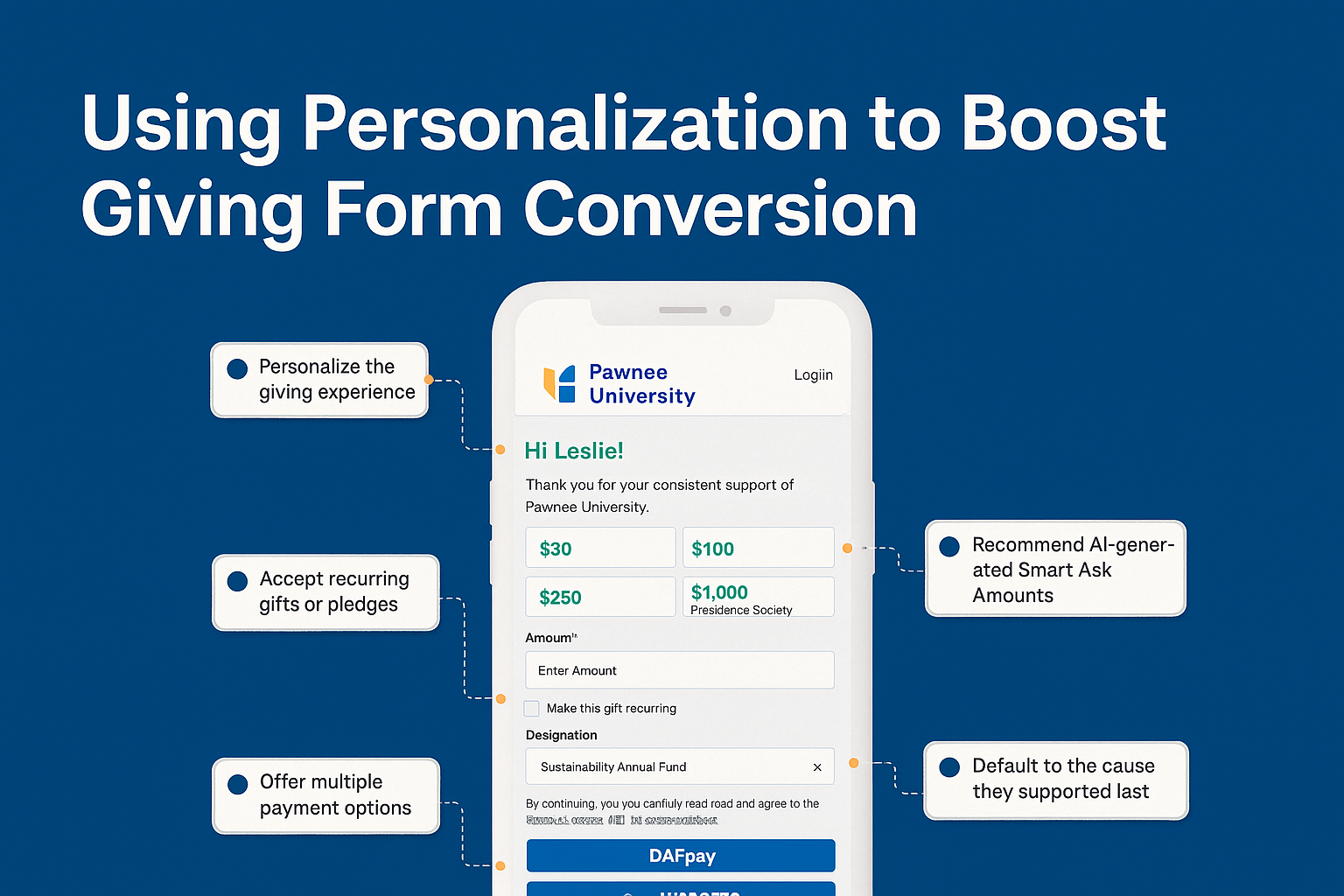GiveCampus donates more than $1 million in free fundraising support
The American Dream inspires us to believe that all Americans have equal opportunity to succeed and prosper. That hard work and determination are more powerful forces than one’s background and the socioeconomic class they were born into. That everyone can achieve upward mobility.
But evidence suggests that this promise is faltering. A shrinking number of people are moving from the bottom of the income distribution to the top. Fewer people are earning more than their parents. And children born poor are more likely to stay poor.
In short, social mobility is stalling.
Education is supposed to be a key factor in the equation. A pathway to success and prosperity for those from less advantaged backgrounds. “The balance wheel of the social machinery.”
The value of high-quality education is irrefutable. Research closely links the quality of one’s education—starting as early as kindergarten—to future income, and the cost of not going to college has never been greater. Studies comparing the earnings of those with a bachelor’s degree to those with only a high school diploma suggest that the earnings premium of higher education may be as great as 84 percent. A college education—particularly from a selective institution—significantly reduces the correlation between one’s future earnings and their parents’ income.
In other words, education can be a critical driver of upward, intergenerational mobility.
For too many, however, high-quality education is unaffordable and inaccessible. The likelihood that someone will go to college is closely correlated with their family’s income and at our most prestigious schools an unacceptably small percentage of students comes from families in the bottom fifth of the income distribution. Many of our brightest, most talented students do not even apply for admission.
Meanwhile, systemic racism and its cumulative effects mean students of color are disproportionately locked out of vital advancement opportunities. Black children, Latinx children, and Indigenous children are more likely to grow up poor—and therefore even less likely to have access to a good education. The conversation about social mobility is one about class and race.
Students from low-income families that attend top colleges and universities are able to achieve significant mobility. However, many top schools have more students from families in the richest 1% than from families in the poorest 60%. According to Raj Chetty, a Harvard economist, “Children whose parents are in the top 1% of the income distribution are 77 times more likely to attend an Ivy League college than those whose parents are in the bottom income quintile.”
77 times.
We founded GiveCampus to help advance the quality, the affordability, and the accessibility of education, and we believe it is an urgent national priority to eliminate this gross disparity and others like it.
We need more low-income students to apply to, attend, and graduate from schools with track records of driving upward mobility. We need more schools to develop such track records. And we need to cultivate consistency in education quality, accessibility, and attainment—from early childhood on. If we don’t, our educational system will continue reinforcing existing conditions when it should be ensuring that everyone has a fair shot–regardless of their race, class, or other circumstances at birth.
Why we launched the GiveCampus Social Mobility Initiative
We launched the GiveCampus Social Mobility Initiative to provide free fundraising support for programs and initiatives that promote greater mobility through targeted assistance for low-income students, first-generation students, and underrepresented minorities. We announced this initiative at the GiveCampus Partners Conference in February of 2020 and have since awarded more than $1,000,000 in free fundraising support to some 24 non-profit educational institutions.
Schools that were awarded support received free access to our digital fundraising products to raise a specified amount. We waived all set-up and subscription fees and paid all credit card processing fees on their behalf. And schools enjoyed access to the same resources and support as other GiveCampus partner schools, including strategic guidance and tactical assistance from our Partner Success team.
We don’t have all the answers on how to foster greater social mobility. Moreover, we recognize that fundraising alone can’t solve the problem. Our aim is to help bolster funding for programs and initiatives that already work and to promote fundraising for new ideas and experiments that might not otherwise see the light of day due to lack of funding.
We designed The GiveCampus Social Mobility Initiative around support for low-income students, first-generation students, and underrepresented minorities, knowing that these three groups often are one and the same. Amidst our nation’s long-overdue reckoning with systemic racism, we received applications that acknowledged and sought to confront racial injustice head on. We believe that concrete near-term actions like these can be steps toward lasting change.
To date, GiveCampus has distributed support to 24 schools of various shapes and sizes: Public and private. PK-12 and higher ed. 2-year and 4-year colleges and universities. Schools that already admit, enroll, and graduate relatively large numbers of low-income students, first-generation students, and underrepresented minorities, and schools that are committed to admitting, enrolling, and graduating more. Those that have a track record of propelling upward social mobility and those that want to do better.
Fundraisers at educational institutions can play an important role in realizing the promise of social mobility and building a more just and equitable society. We are excited to support them, to learn from them, and to work alongside them to inspire philanthropy for this cause.




